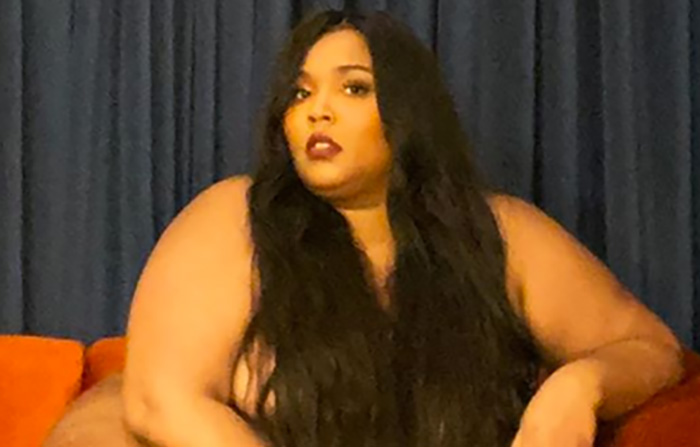Def Jam, Rush Communications, Def Comedy Jam, Phat Farm, the list companies and products of success all with the Russell Simmons stamp of approval goes on and on. While he is a man of many recognizable talents, it’s the reconcilliation of his spiritual and business life that defines the utmost balance the most.
Not only a pillar of progression in the world of Hip-Hop, he is the truth in a man of self-actualization. Having been instrumental in the careers of so many rappers that if you don’t already know, proceed directly to your nearest search engine and get familiar, Russell has evolved from Hip-Hop mogul to the one of the most viable brand builders in business.
Simmons returns from the success of Do You!, a book about the principles of spirituality, to release Super Rich, a work that not only highlights the necessity in fulfilling the “wordly” operations of wealth, but learning how to truly live in happiness despite material worth.
In an exclusive interview with Russell Simmons, the mogul talks business, spirituality, and transcending everything we’ve ever been told about being Super Rich.
Your previous book, Do You! emphasized spiritual principles. Why did you decide to call this book Super Rich?
Initially I was going to call the book Rich Inside and Out. Then one day I was describing the book to my ex-wife Kimora Lee and she said, “Oh, so you’re trying to show people how to be super rich!” And when she said that, it really rang a bell. Because what this book is promoting is finding a way get past the accepted definition of “rich,” which is money and material toys, and accepting that true happiness and success comes from living in a state of consciousness where you’re connected to the spiritual richness inside of you. When you’re able to sustain that connection, that’s when you’re Super Rich.
You mention TM a great deal in the book. What is it, and why is it important?
TM, or Transcendental Meditation, is a style of meditation that was developed by the great Indian guru Maharishi Mahesh Yogi. It differs from other styles of meditation in several ways, but probably the most significant is that it emphasizes focusing your meditation on a mantra, as opposed to your breath. The other is that most styles of meditation teach that you shouldn’t move physically once you start practicing. If a fly lands on you, don’t try to brush it off, because that will break your concentration. In TM, you’re taught that if a fly lands on you, feel free to brush it off, because the deeper you get into meditation, you won’t care about the physical world anymore. A fly can land on you and won’t even notice. TM is so important. It’s a direct path to that state of consciousness that we all need to find in life.
Has meditation helped you in both your personal and professional life?
In so many ways. It’s helped me let go of so much needless stress and anxiety that I was carrying around with me. Extra baggage that was clouding my decision making process and preventing me from having access to my best ideas.
It’s also had an amazing affect on my physically. One of the things I talk about in the book is that meditation helps calm your nervous system. And when your nervous system is calm, you have a much better chance of fighting off afflictions, from a cold, to cancer.
You talk in the book about going from a drug dealer to a yogi and provider. Talk about that transformation and how it first started to take place.
It’s been a gradual transformation. When I was a drug dealer, I instinctively knew that I wasn’t comfortable selling people things that made them sick and worrying about my own safety. But I let the physical rewards of dealing drugs cloud my vision to that truth.
When I started getting into Hip-Hop, I realized that I was would be much happier selling people something that made them feel great, instead of sick. So I went with that. But it wasn’t until I got into yoga and then meditation that I was able to articulate why promoting Hip-Hop culture was better than pushing drugs. And namely, it was that unless you provide the world with a stable, happy service, you’re never going to find stable happiness in your own life. So while I might have always known that in my heart, yoga and meditation gave me faith in the concept, and the confidence to build my career around it.
Readers have seen a million get-rich-quick books. How is Super Rich different from all of the others out there?
Super Rich is different in that it doesn’t try to segregate the concepts of spiritual and worldly success. There are some self help books that adopt a very Machiavellian approach where God is never mentioned, while there are other books that are so focused on the spiritual that they are practically blind to people’s worldly needs. But my approach has always been to have one foot planted very firmly in God, and the other foot planted firmly in the world. I think this book reflects that sense of duality. I want people to see that far from being separate, there is a direct connection from getting rich in your heart and getting rich in the world.
One chapter is called Being A Business Yogi where you discuss only working on projects that you believe in. How do you choose your projects?
The first step comes back to this concept of service. If a project doesn’t strike me as something that will provide the world with a lasting, stable service, then I’m not interested. If it looks like it will provide a stable, non-exploitive service, the next step is determining whether I have a strong vision for where it can go. Because if I don’t have a vision for a project, or at least buy into my partner’s vision, then I’m not interested.
If readers can take only one thing away from Super Rich, what would you want that one thing to be?
To wake up from seeing the world through cloudy lenses and be conscious of their higher selves. To embrace their spiritual evolution. To feel comfortable making the compassionate choice in all situations. If people can be even just one degree more compassionate and conscious after reading this book, then I would consider it to be a great success.

![Da Brat Marries Judy Dupart on 2.22.22 [PHOTOS]](https://hiphopucit.com/wp-content/uploads/2022/02/1645669184565-440x264.jpeg)
![Drake Reveals Photos of His Son Adonis [Photos]](https://hiphopucit.com/wp-content/uploads/2020/03/Drake-and-on-Adonis-HHUCIT.jpg)

![Megan Thee Stallion – “BOA” [NEW VIDEO]](https://hiphopucit.com/wp-content/uploads/2024/05/Megan_Thee_Stallion___BOA__Official_Video__1_12_screenshot-440x264.jpg)
![Doechii Feat. JT – “Alter Ego” [NEW VIDEO]](https://hiphopucit.com/wp-content/uploads/2024/05/Screenshot-of-Doechii-and-JTs-Al-440x264.png)
![Young Thug Feat. Drake Drop – “Oh U Went” [NEW VIDEO]](https://hiphopucit.com/wp-content/uploads/2023/07/Young-Thug-and-Drake-1014x570-1-440x264.png)







